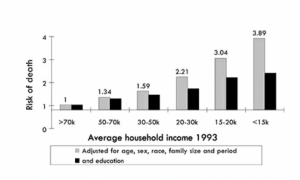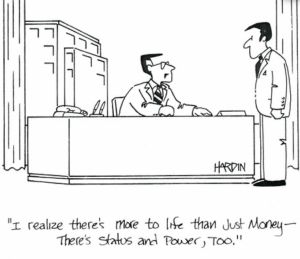I always felt that criticism was a fascinating invention, but it should be used sparingly. Here’s my take on Homo sapiens’ creation.
Criticism
I am going to show how a weapon, which homo sapiens have perfected, allows us to “cut” another human being. This is called the criticism. I am not talking about teasing that involves affection, which respectfully knows when it has gone too far, but rather criticism that is meant to inflict harm and is a direct attack on our self-esteem. I’m also including the well-intentioned kind that cuts deep because our subconscious knows that it is true. Either way, the crux of criticism is “to find fault”. If we step the criticism up a notch, then we have what is known as contempt. When we show contempt, then we show that a person or their attributes are inferior.
If we want to harm with criticism, we can customize it for the best effect. We can modulate our tone, use body language, target our words, and use emotion, all to prove superiority. There are many options to choose from. There is teasing, which “playfully” pokes fun at the expense of another, mocking, which creates a caricature of our worst attribute, rendering us as clowns that can’t be taken seriously, and ridicule, which dismisses another as worthless. If that wasn’t enough, we have sarcasm, which covertly puts us down. The type is also situation-dependent. If there are people around, then we are humiliated. And if we fail to meet expectations, then we are berated. We have, indeed, stumbled upon our Achilles heel since no one wants to deviate from a desirable standard.
Being criticized can cause anger or a low mood, but when repeatedly subjected to criticism, and we can’t escape or fight back, known as arrested flight/fight, then we can end up in a defeated state. The thing with criticism is that the person that spews it wins at the cost of the other’s self-esteem. Although the victor may feel guilt, the loser goes through an increase in cortisol, adrenaline, along with evoking the aversive emotions of shame or hurt feelings. Anytime the self, which includes our abilities and attributes, is exposed to be inferior or undesirable, then we feel shame*. Shame shows when we view our exposed self through the eyes of others. By contrast, hurt feelings come if we feel that the criticizer no longer values us since criticisms can be a form of rejection.
Not everyone feels shame from a perceived threat of criticism. This is because they either didn’t know the sense in which the word was supposed to be critical, the criticism was non-threatening, their mind fails to process it for numerous reasons, or they have already exposed their flaws and have come to accept them. If we have any bit of intelligence, then we are going to process that threat. The trick to not feeling shame and hurt feelings is to attribute the threat to something else, anything but us. Common tactics include attributing the attacker to be jealous and giving false information, they didn’t mean it in that sense, or minimizing its importance. But criticisms that reappear in life may have some truth and value to them, so it’s best to deal with the pain and accept. Otherwise, you are stuck with two conflicting beliefs: it either conforms to a social reality or it doesn’t. You end up with dissonance.
Notes
*Shame only works if we attribute a fault or failure to meet a standard to “us” being the cause. If we attribute our failings to it being a fluke or we didn’t try hard enough, then it doesn’t get triggered. In other words, It has to be global (us as beings or our attributes) and stable (can’t change it because that’s our aptitude). One thing that would always irritate me is when someone would make me feel like my efforts were inadequate or not enough. If we think that our efforts are caused by our capabilities and not motivations, then we will feel shame. Otherwise, we will feel guilt, which is what we mean when we say that you are making me feel bad.


